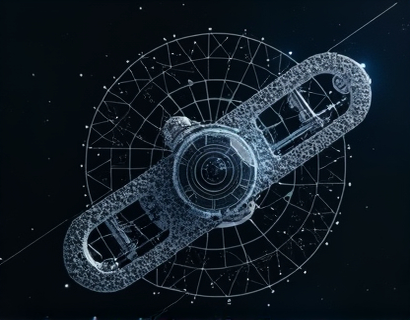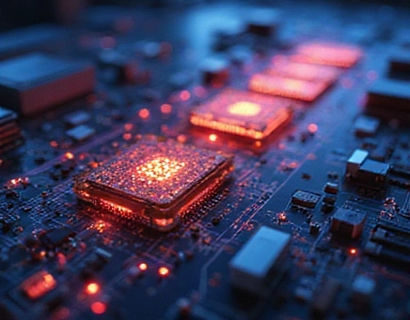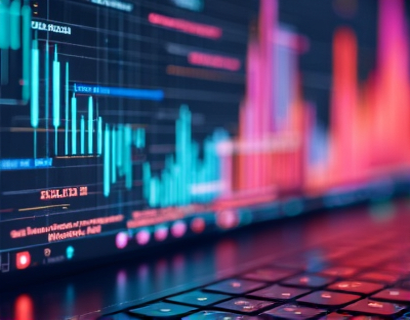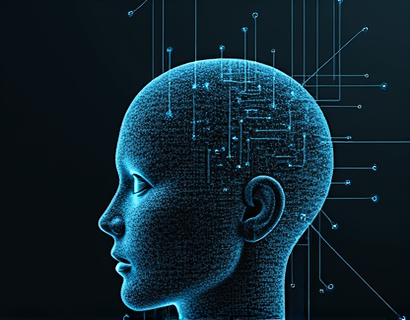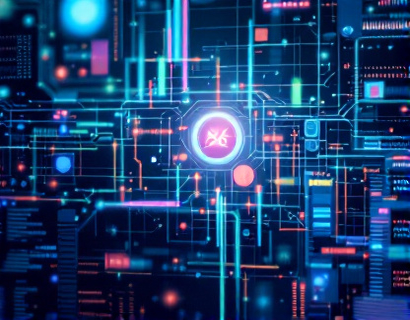Decentralized Organization Dynamics: Unleashing the Power of Advanced Software for Optimal Governance and Efficiency
In the rapidly evolving landscape of organizational structures, decentralized systems have emerged as a transformative force, promising to redefine governance, collaboration, and efficiency. This article delves into the intricate dynamics of decentralized organizations, focusing on how advanced software can catalyze the creation of universal decentralized entities. By leveraging cutting-edge technology, these organizations can achieve unprecedented levels of transparency, accountability, and operational excellence.
The concept of decentralized organizations is rooted in the principles of distributed autonomy and collective decision-making. Unlike traditional hierarchical structures, decentralized organizations distribute power and responsibilities across a network of participants. This shift not only democratizes decision-making but also enhances resilience and adaptability. However, realizing the full potential of decentralized systems requires more than just a change in organizational design; it demands sophisticated software solutions that can manage complexity, ensure seamless communication, and maintain robust governance mechanisms.
Advanced software plays a pivotal role in the development and functioning of decentralized organizations. These tools are designed to facilitate various aspects of decentralized governance, from token-based voting systems to smart contract execution. By integrating these technologies, organizations can automate processes, reduce human error, and enhance transparency. The following sections explore the key components of a robust software stack that empowers decentralized organizations to thrive.
Foundational Technologies for Decentralized Governance
At the core of any decentralized organization is a set of foundational technologies that enable secure, transparent, and efficient operations. Blockchain technology stands out as a cornerstone, providing an immutable and decentralized ledger for recording transactions and smart contracts. This technology ensures that all actions within the organization are traceable and verifiable, fostering trust among participants.
Smart contracts, self-executing contracts with the terms directly written into code, are another critical component. They automate and enforce agreements without the need for intermediaries, reducing costs and increasing speed. By programming specific conditions and outcomes, smart contracts can manage everything from fund distribution to governance proposals, ensuring that decisions are executed precisely as intended.
Decentralized Identity (DID) systems are also essential for managing user identities in a decentralized environment. These systems allow individuals to control their digital identities without relying on centralized authorities, enhancing privacy and security. By using DIDs, decentralized organizations can ensure that only authorized users access sensitive information and participate in governance processes.
Enhancing Collaboration and Communication
Effective collaboration and communication are vital for the success of decentralized organizations. Advanced software solutions provide tools that facilitate seamless interaction among geographically dispersed members. Decentralized messaging platforms and collaborative workspaces built on blockchain technology ensure that all participants have real-time access to information and can engage in meaningful discussions.
Forked communication channels and decentralized social networks further enhance the ability of members to connect and collaborate. These platforms support various forms of interaction, from text and voice chats to video conferences, all while maintaining a decentralized and censorship-resistant environment. By leveraging these tools, organizations can overcome the challenges of distance and time zones, fostering a more cohesive and productive community.
Transparency and Accountability Mechanisms
Transparency is a fundamental principle of decentralized organizations, and advanced software plays a crucial role in maintaining this transparency. Public blockchains serve as a transparent ledger, allowing all stakeholders to view transactions, proposals, and decision-making processes in real-time. This level of openness builds trust and accountability, as there is no room for hidden agendas or unauthorized actions.
Audit trails and transparency protocols are integrated into the software stack to ensure that every action within the organization is recorded and accessible. These protocols can be customized to meet specific governance requirements, providing detailed logs of transactions, votes, and other significant events. By maintaining a comprehensive and immutable record, decentralized organizations can demonstrate their commitment to transparency and accountability.
Optimizing Decision-Making Processes
Efficient decision-making is essential for the agility and responsiveness of decentralized organizations. Advanced software solutions offer tools that streamline the proposal, discussion, and voting processes. Token-based governance systems, for instance, allow members to propose and vote on initiatives using cryptocurrency tokens. This approach not only simplifies the voting process but also provides a quantifiable measure of support for each proposal.
Decentralized Autonomous Organizations (DAOs) leverage these tools to implement dynamic governance models. By automating routine tasks and enabling community-driven decision-making, DAOs can respond quickly to changing circumstances without the bottlenecks associated with traditional hierarchical structures. Advanced software ensures that these processes are secure, transparent, and accessible to all members.
Scalability and Interoperability
As decentralized organizations grow, scalability becomes a critical concern. Advanced software solutions are designed to handle increasing numbers of users and transactions without compromising performance. Techniques such as sharding, layer 2 protocols, and state channels enable the network to process a higher volume of activities efficiently, ensuring that the organization can scale seamlessly.
Interoperability is another key aspect, allowing different decentralized systems to communicate and interact seamlessly. Cross-chain bridges and standardized protocols facilitate the exchange of data and assets across various blockchain networks, expanding the capabilities of decentralized organizations. This interoperability is crucial for building a connected ecosystem where different entities can collaborate and benefit from each other's strengths.
Security and Risk Management
Security is paramount in decentralized organizations, where the absence of central authorities makes the system more vulnerable to attacks. Advanced software incorporates robust security measures, including cryptographic algorithms, multi-signature wallets, and regular audits, to protect against potential threats. By implementing these safeguards, organizations can minimize the risk of fraud, hacking, and other security breaches.
Risk management frameworks are also integrated into the software stack to identify and mitigate potential vulnerabilities. These frameworks involve continuous monitoring, threat assessment, and incident response plans. By proactively addressing security concerns, decentralized organizations can maintain the trust and confidence of their members and stakeholders.
Case Studies and Real-World Applications
To illustrate the practical applications of advanced software in decentralized organizations, several case studies highlight the transformative impact of these technologies. One notable example is a decentralized finance (DeFi) platform that uses smart contracts to provide lending and borrowing services. The platform's software stack ensures transparent interest rate calculations, automated loan agreements, and secure asset management, all while maintaining full visibility for users.
Another example is a decentralized content creation platform that leverages blockchain to reward creators based on community engagement. The platform's software facilitates token-based incentives, transparent content distribution, and direct interactions between creators and audiences. This model not only incentivizes high-quality content but also builds a vibrant and engaged community.
Future Trends and Innovations
The landscape of decentralized organizations is continually evolving, with new technologies and innovations emerging regularly. One area of focus is the integration of artificial intelligence (AI) and machine learning (ML) into decentralized systems. AI can enhance decision-making processes by analyzing vast amounts of data, identifying patterns, and providing insights that inform governance decisions. ML algorithms can also improve the efficiency of smart contracts, adapting to changing conditions and optimizing outcomes.
Another promising trend is the development of decentralized cloud computing platforms. These platforms enable organizations to store and process data in a decentralized manner, enhancing privacy and reducing reliance on centralized cloud providers. By leveraging distributed storage and computing resources, decentralized organizations can achieve greater resilience and cost-effectiveness.
Furthermore, the rise of decentralized marketplaces is transforming how goods and services are exchanged within decentralized ecosystems. These marketplaces use blockchain to facilitate trustless transactions, ensuring that buyers and sellers can interact securely and transparently. By removing intermediaries, these platforms reduce costs and increase accessibility, fostering a more inclusive and dynamic economy.
Conclusion
Advanced software is the driving force behind the transformation of organizational dynamics in the decentralized space. By harnessing the power of blockchain, smart contracts, decentralized identity systems, and other innovative technologies, organizations can achieve optimal governance, collaboration, transparency, and efficiency. As the field continues to evolve, the potential for decentralized systems to reshape various industries and aspects of society becomes increasingly evident. Embracing these advancements is essential for anyone interested in the future of decentralized governance and operations.











